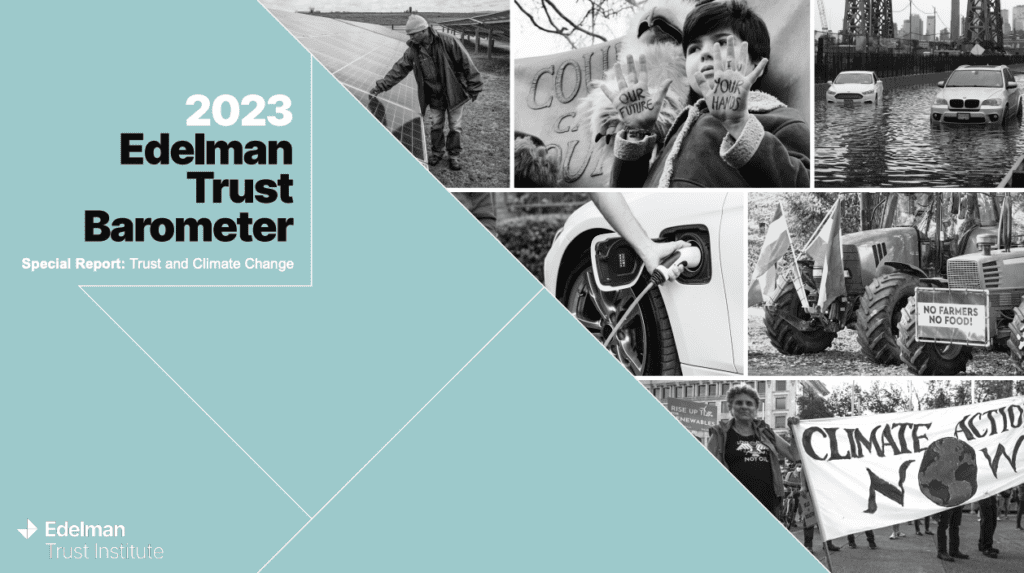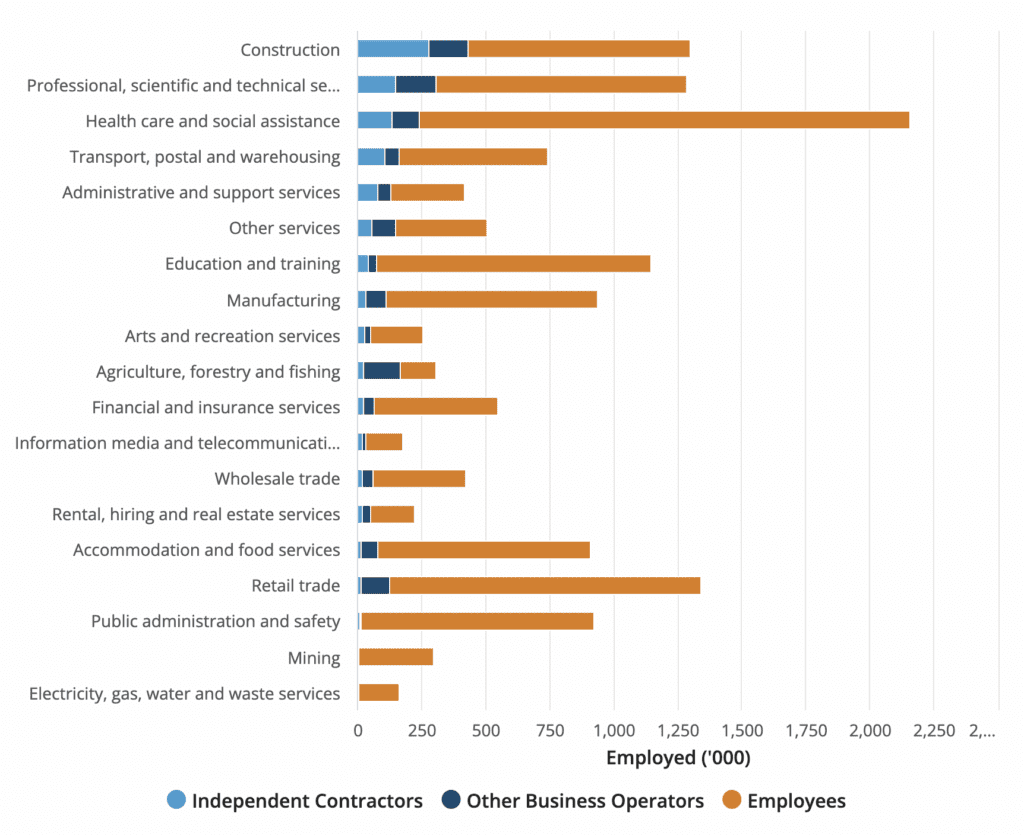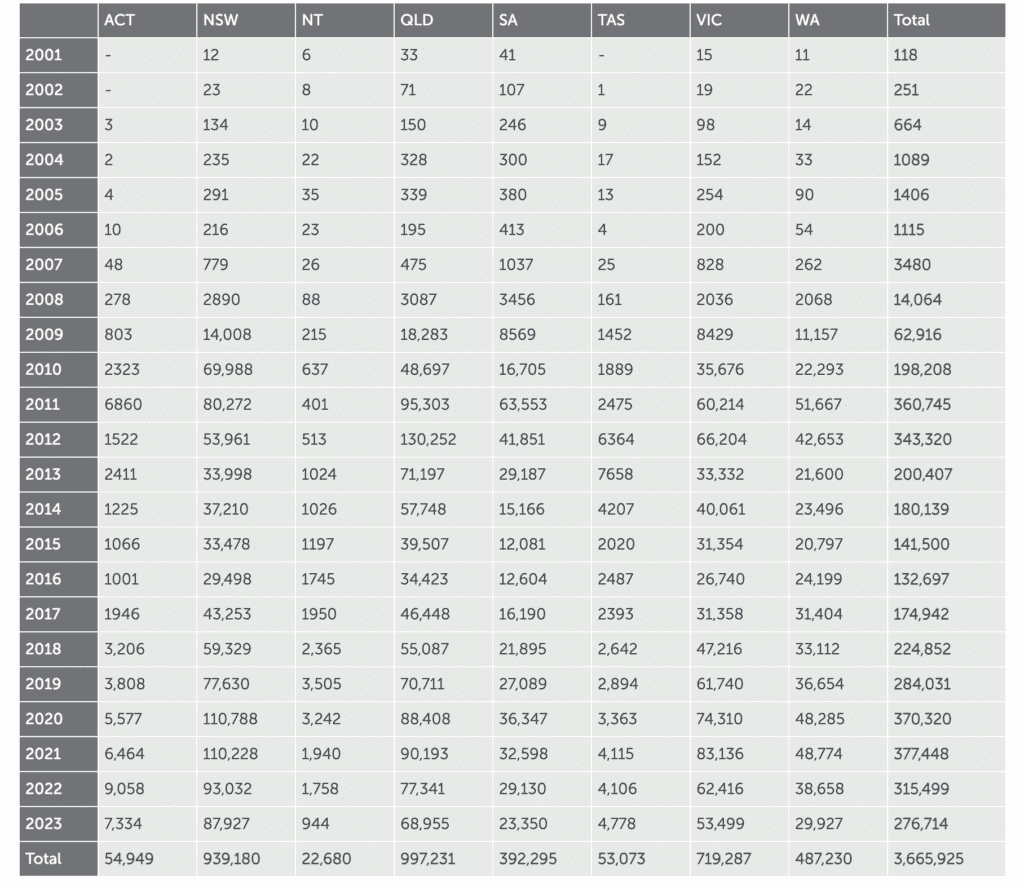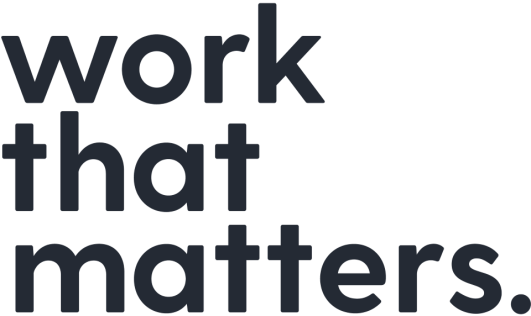The turn of 2020 heralded a change to Australian and global cultural life that was profound and widespread. Threatened by the fragility of our supply chains and institutions when confronted with a global pandemic and growing climate instability, Australians forged on – working to build a society that values inclusivity, economic equity and sustainability.
In 2023, a host of issues continued to play on Australian public consciousness. A historic change of government in March lent itself to a natural transition period, in the midst of budgetary challenges, growing cost-of-living pressures, rising inflation, labour shortages and a ground swell of support for constitutional recognition of First Nations peoples, which was later defeated in the referendum.
2023 was turbulent.
An Optus nationwide outage challenged public faith in information technology and sparked conversations about our over-reliance on digital systems. Medicare experienced a major data breach, raising concerns about data privacy and the under-regulation of major data assets. And of course, the unethical behaviour of some of our largest companies, namely Qantas, challenged public perceptions of corporate leadership and compliance.
Australia is in a precarious position politically and culturally, but nevertheless, community leaders continue to make strides of positive forward progress. Acknowledging that the need for inclusive, robust community engagement and proactive communications in times of crisis will continue to grow across 2024 – here are our major trend and sentiment predictions to keep in mind.
Our trust in global institutions is declining… still.
According to the Edelman Trust Barometer, public trust in government, big businesses, NGOs and media institutions declined between 2020 and 2021 – and this trend has only continued into 2023. Racial and social injustice, and the ongoing repercussions of COVID-19 are thought to be behind this shift. In 2020, trust inequality in Australia was ranked to be the highest in the world, with the largest portion of the mass population holding scepticism toward major institutions.

Moving forward, businesses and public institutions will need to live the values of transparency, honesty and integrity to maintain public trust, as well as enlist reputation management strategies.
Crucially, as authentic engagement with communities’ grows in necessity, we must also ensure that our communications stand the test of integrity and are candid and timely.
Our wealth gap is growing.
The latest report produced by the Australian Council of Social Service found that the average net wealth of a household in the highest 20% wealth group in Australia is over ninety times that of a household in the lowest 20% wealth group. A combination of high inflation, soaring rents, low vacancy rates and stagnant wage growth also saw a 7.5% increase in the demand for homelessness services across the first half of 2023.

The implementation of community social services and affordable housing strategies will continue to represent major projects within the development and planning sector.
Our communities are acutely aware of the current cost of goods and services, and want to see accountability in public spending. Engagement will be key to helping people understand why major investments are needed.
Our mental health is deteriorating.
According to forecasting by the World Health Organisation, depression is predicted to be the biggest health risk on the planet by 2030. The Mental Health Australia Report to the Nation found there was a 4% increase in the number of Australians seeing a psychologist, psychiatrist or counsellor in 2023, and a 4% increase in the number of Australians using digital mental health services or applications.

Across 2024, community and government workers will need to be mindful of the growing burden of mental health challenges facing the citizens that they they engage – and the wide-spread trauma absorbed by communities in crisis.
The need to communicate sensitively via through trusted community channels, using trauma-informed practices, is more important than ever.
It’s not all bleak…
“In 2024, a social, political, and environmental tipping point will drive people to drastically reform and rewire their world. From reinventing the notion of work and challenging the current growth narrative, to reshaping societal norms and developing entirely new digital realities, our world is changing more drastically and positively than ever.”
– Soon Futures
Our knowledge is mounting.
Faced with an influx of wicked problems, our increasingly savvy society has put a premium on knowledge. Information, data and skills are viewed as valued economic recourses, and currently, Gartner finds that there are more than 1 billion knowledge workers globally who prove that to be the case.
According to the Australia Bureau of Statistics, the ‘Professional, scientific and technical services’ industry boasted the fourth highest number of employees and operators nationwide in 2023.

Increasingly, we will rely on the expertise of highly-specialised, knowledgeable experts in the community, whose input should be considered when undertaking projects of major importance.
In times of low trust, how we communicate this information with the community will be critically important to ensure that individuals understand the intentions of leaders and buy-into collective solution finding.
Our technology is improving.
Artificial intelligence, virtual reality, quantum computing and blockchain technology is continuing to improve rapidly, with two-thirds of Australian employees found to be using generative AI to increase their effeciency in the workplace.
Our access to technology is also rising, with IOT Analytics projecting that there will be more than 30 billion ‘Internet of Things’ (i.e., smartwatches, smart refrigerators) devices globally by 2025, which equates to an average of four IoT devices owned per person.

In 2024, businesses and public institutions will benefit from the use of AI in their work with communities – while being careful to ensure that equitable access to technology is promoted nationwide.
The growing uptake of sophisticated technology across the country will continue to shape how we gather and share information, and over time will transform how we engage and communicate.
Our roads and suburbs are decarbonising.
A recent study by the Federal Chamber of Automotive Industries (FCAI) found that electric vehicles equated to almost one in 10 new car sales to 2023 – more than double those of 2022. In fact, in the past 13 years, over 105,819 new electric vehicles have been officially registered nationwide. Further demonstrating that individual action against climate change is mounting, the Australian Clean Energy Regulator confirmed that as of 2023, more than 3.6 million homes now generate domestic energy using rooftop solar.

Corporations and government entities can expect to encounter increasingly climate-savvy community members over the next 12 months, who are willing to engage in behaviour change on behalf of the environment.
Interestingly, while not every Australian believes that climate change is a human-made phenomenon, we know from our engagement that people do believe that the climate is changing.
Our will to strive for better is unwavering.
And by that, I mean ours.
At Articulous, we work to equip businesses, non-for-profits, NGOs, Councils and government departments with the tools needed to navigate our changing world, and do right by the community members who need their help most. 2024 may be another year of turbulence, but we’re prepared to guide you every step of the way. Join us, as we work with you on work that matters.







